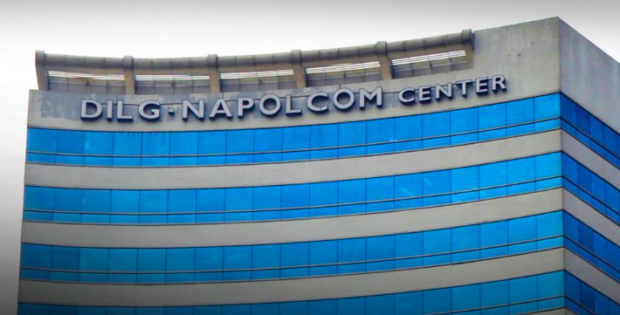
The DILG-Napolcom Building on EDSA corner Quezon Avenue in Quezon City. Image from the DILG’s Facebook page.
MANILA, Philippines — The Department of the Interior and Local Government (DILG) is hiring 2,000 more contact tracers in Quezon City, the largest city in Metro Manila, after the Bayanihan to Recover as One Act was signed into law.
In a statement from the Quezon City government, DILG-QC Director Emmanuel Borromeo said the applicants must have a bachelor’s degree preferably with criminology and allied medical courses.
“Applicants must have a bachelor’s degree, preferably allied medical course or criminology and must be skilled in data gathering and/or assisted in research and documentation,” Borromeo said.
Among the contact tracers’ responsibilities are:
- to conduct interviews, profiling, and perform an initial public health risk assessment of COVID-19 cases and their identified close contacts;
- refer the close contacts to isolation facilities;
- conduct enhanced contact tracing in collaboration with other agencies and private sectors;
- conduct daily monitoring of close and general contacts for at least 14 days and perform such other tasks in relation to the COVID response
DILG said a contact tracer’s monthly pay is valued at 18,784.00 (Salary Grade 9) for a maximum of four months.
Quezon City Mayor Joy Belmonte, for her part, fully supports DILG’s move as it would help the city government in its efforts in tracing close contacts of COVID-19 patients.
Interested applicants for QC contact tracers may submit a letter of intent and personal data sheet, which can be both accessed on contacttracing.ncr.dilg.gov.ph, National Bureau of Investigation clearance and drug test result and upload the required documents to https://contacttracing.ncr.dilg.gov.ph.
The deadline for submission of requirements is on Sept. 23, 2020.
Previously, Interior Secretary Eduardo Año said the DILG is hiring 50,000 additional contact tracers nationwide after the Bayanihan 2 law was approved.
According to the Department of Health data, Quezon City logged a total of 25,953 COVID-19 cases with 20,833 recoveries and 419 fatalities on Wednesday.